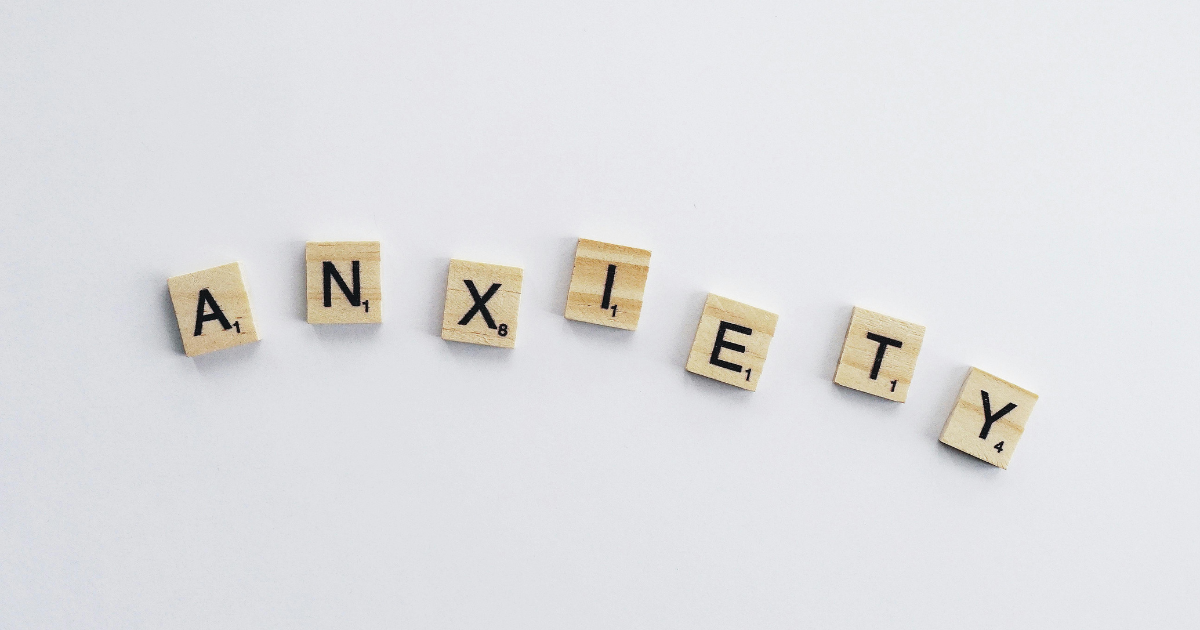Did you know that over 970 million people worldwide are affected by mental health conditions? From depression and anxiety to more complex illnesses like schizophrenia, these challenges touch individuals across all ages, cultures, and backgrounds, making mental health a critical global issue. With so many types of mental health disorders, understanding their symptoms, causes, and effects is key to promoting early intervention, reducing stigma, and ensuring people receive the support they need.
People who notice mental illness indicators can obtain proper care before their mental state deteriorates. The guide examines different mental disorders because it investigates mood disorders and recognizes personality disorders as well as neurodevelopmental conditions and their effects during everyday life before explaining professional treatment needs.
What Is Mental Health and Why Does It Matter
One important question many people ask is: What is mental health illness? Different people have various definitions of mental health, yet few genuinely grasp what mental health diseases are and the way they affect daily life. The current state of mental health controls a person’s thinking patterns, emotional responses, and their regular habits. Human conditions require attention to emotional and psychological states together with social well-being because these three aspects determine stress handling, social relationships, and behavioral choices.
A person with a mental illness loses their capacity to think clearly and experience emotions, but their behavioral patterns deteriorate over time, eventually impairing their day-to-day functioning. Statistics from the World Health Organization show that mental health conditions touch one person in four adults during their lifetime. Correct diagnosis of these mental health disorders at an early stage demonstrates benefits for patient care and life quality.
Mood Disorders
Mood disorders stand as one of the leading types of mental health disorders, which occur in millions of people throughout the world. The emotional states of patients are primarily affected by these conditions, which result in sustained depressive symptoms together with constant irritability and major mood swings. Mood disorder-related mental health issues disable people from functioning typically while interrupting their relationships and damaging their general health state, in contrast to standard emotional responses.
Depression, Bipolar Disorder, and Related Conditions
The most recognized mood disorders occur among various mental health conditions, as depression and bipolar disorder exist simultaneously.
Major depressive disorder (MDD)
Depression is the primary condition of major depressive disorder (MDD) that leads individuals to experience extended sadness along with diminished interest in activities and resulting fatigue and transformations in appetite or sleep cycles. The symptoms of different mental disorders block patients from sustaining meaningful relationships and prevent them from fulfilling work responsibilities as well as performing daily responsibilities.
Bipolar disorder
Bipolar disorder makes its patients experience periods of intense depression followed by periods of mania. The intense manic phases lead to elevated energy, impulsive behavior, and unpredictable choices, yet depressive episodes produce symptoms identical to major depression.
Cyclothymic disorder
Cyclothymic disorder represents a related condition that causes moderate mood swings that affect day-to-day activities.
Anxiety Disorders
Mental health disorders, consisting of anxiety disorders, represent the chief condition that impacts millions of people worldwide. The development of anxiety disorders from extreme, persistent worry and fear about daily stressors results in disability for daily functioning. Mental illness in anxiety disorder patients reveals typical signs and symptoms of mental illness, which include physical restlessness, problems with concentration, and sleep difficulties.

Generalized Anxiety, Panic Disorder, and Phobias
Generalized Anxiety serves as the first among three anxiety disorders, along with panic disorder and phobias.
Generalized Anxiety Disorder (GAD)
People with generalized anxiety disorder face such extreme worries about regular tasks that it results in bodily distress, such as muscle tightness and headaches.
Panic Disorder
Panic disorder suddenly causes severe panic attacks, which create symptoms parallel to those found in heart attacks, so individuals affected by this condition avoid specific scenarios.
Phobias
People with phobias suffer unreasonable terror regarding specific objects or situations that lead to immediate emotional panic, including both acrophobia and social anxiety disorder.
Personality and Psychotic Disorders
Personality and psychotic disorders represent complex mental health conditions that prove difficult to manage since they alter fundamental aspects of how people think, feel, and behave. Such mental disorders include persistent cognitive patterns that modify reality perception, thus causing relationship problems and daily function impairment.
People who experience these conditions generally face problems with managing emotions while also dealing with distorted perspectives of their identity they might also face confusion about the separation between reality and fiction. The identification of symptoms at the right moment and suitable therapeutic measures promotes improved well-being for patients, although symptoms exhibit varying presentations.
Schizophrenia, Borderline Personality, and Others
Schizophrenia
Schizophrenia disrupts mental functions through severe impairment of mental processes that affect thinking abilities as well as emotional states and behavioral patterns. Support and treatment to address the disability caused by hallucinations, disordered thinking, and delusional beliefs must be extensive because these symptoms create a major disability for patients.
Borderline Personality Disorder
People with Borderline Personality Disorder experience severe emotional instability while maintaining poor interpersonal connections through their impulsive actions. Borderline Personality Disorder causes people to fear abandonment while they hurt themselves and lose their self-identity, which damages their relationship-building abilities.
Neurodevelopmental and Behavioral Conditions
Neurodevelopmental and behavioral conditions disrupt brain growth, which leads to modifications in human behavior, social capacities, and mental processing abilities. Neurodevelopmental and behavioral conditions develop during childhood and can continue through adulthood, which leads to difficulties in both personal daily activities and general health quality.
The main characteristics of neurodevelopmental conditions differ from other types of mental health disorders since they manifest primarily through communication problems, attention issues, impulse control difficulties, and emotional regulation problems.
ADHD, Autism Spectrum Disorders, and More
People with ADHD commonly develop mental health symptoms that produce difficulty controlling their attention while showing excessive movement and spontaneous actions. The condition disrupts both school success and work efficiency. The autism spectrum disorder affects communication, social behaviors, and behavioral patterns through variations of symptom intensity. People with autism need specific support systems because they experience difficulties in verbal communication, along with social relationships.
How Mental Health Disorders Impact Daily Life
Health disorders of the mind disrupt regular schedules, interpersonal bonds, and general life quality. People encounter severe emotional pain and find maintaining attention challenging. They also face serious problems with mental health. Mental illness produces various symptoms ranging from constant sadness with anxiety to extreme emotional swings and impulsive conduct.

Such mental conditions create difficulties that prevent individuals from holding jobs while also preventing them from interacting socially and performing basic daily activities. Some mental health problems generate physical symptoms, which include disturbed sleep patterns as well as exhaustion, and modifications to appetite. The failure to receive proper mental health treatment results in the progression of disorders that affect emotional and physical health status. Appropriate early intervention alongside suitable care helps people build coping strategies that enhance their life quality.
Diagnosing and Treating Mental Illness
Diagnosis and suitable treatment for mental health illnesses start with the proper identification of conditions. The evaluation process for diagnosing disorders combines professional clinical assessments, psychological assessments, and medical history assessments.
From Early Signs to Clinical Diagnosis and Care
The early identification of mental health symptoms demands immediate medical attention because it helps health professionals apply suitable therapeutic measures to prevent the condition from becoming worse. Medical treatment becomes more effective when mental health disorder symptoms are detected during their initial emergence.
What to Do With Early Signs:
- Track Symptoms
- Reach Out for Support
- Encourage Open Communication
Early symptom recognition leads mental health professionals toward assessment procedures that establish diagnoses and develop treatment plans. People receive care along with frequent follow-ups through medication along with therapy to guarantee effective symptom management.
Looking for Help Understanding Mental Health? Treat Mental Health Is Here for You
If you or someone you know is struggling with mental health, don’t face it alone. At Treat Mental Health, our compassionate team is dedicated to providing expert guidance and support tailored to your needs. Contact us today to begin your journey toward better mental well-being and get the help you deserve.
FAQs
What are the most common mental health disorders?
Common types of mental health disorders include:
- Anxiety disorders
- Mood disorders (depression, bipolar disorder)
- Substance use disorders
- Schizophrenia
- Personality disorders
- Neurodevelopmental conditions like ADHD.
How do mental disorders impact daily life?
Different mental disorders can disrupt work, school, and relationships, causing difficulty with concentration, motivation, and basic self-care. Symptoms like anxiety, depression, and mood swings can lead to exhaustion and struggles with daily tasks.
What are the early signs of mental health issues?
Early signs include:
- Persistent sadness
- Extreme mood changes
- Social withdrawal
- Fatigue
- Appetite
- Sleep changes
- Trouble concentrating
Some may also experience unexplained physical symptoms like headaches.
How is mental illness diagnosed?
Diagnosis involves mental health assessments, medical history reviews, and DSM-5 criteria. Professionals evaluate symptoms through interviews and, if needed, physical exams to rule out other causes.
What are the treatment options for mental health disorders?
Treatment includes:
- Therapy (CBT, DBT),
- Medication (antidepressants, mood stabilizers)
- Lifestyle changes.
- Support groups
- Stress management
- Personalized care plans








